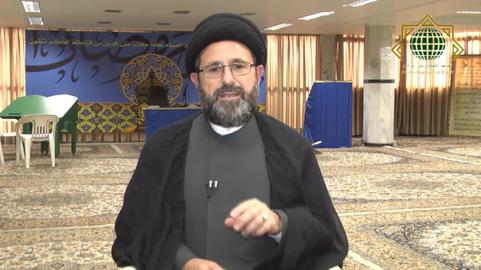Journalists have fled Afghanistan in droves since the Taliban overran Kabul, placing the free media the country had grown accustomed to in grave peril. Many brave reporters, camera operators, photographers, producers and others were left behind during the international community’s evacuation drive. Some are still inside, desperately trying to keep their outlets on air and online. But others have been forced to try to make their own way, on foot or by road, to a safe country.
One of them is Ahmad Farshad Saleh, a former top journalist and news manager at Ariana News. He’s managed to make it to Turkey, and spoke to IranWire about why he knew he had to leave his country of birth behind.
"I made a documentary about the Haqqani network, a militant branch of the Taliban,” Saleh said. “I interviewed several masterminds and perpetrators of suicide bombings, who had been arrested and were being held in the National Detention Facility. That’s why I felt insecure. I saw my life, and that of my family, were in danger. So I had to flee my country and come to Turkey."
Saleh worked for years as a senior reporter with Ariana News, an independent TV channel founded in 2011. He worked in high-risk areas covering the conflict and produced a number of striking, controversial documentaries. In 2016 he was named the country’s Reporter of the Year by the nationwide NGO Nai – Supporting Open Media in Afghanistan. He was Ariana’s head of news for four years before Kabul fell.
Saleh told IranWire that Ariana broadcast content about Afghanistan that tried to stay free of ethnic and sectarian debates, aiming to give people inside and outside the country an accurate, comprehensive picture of Afghanistan. After the Taliban seized back control, he said, he quickly assessed that he couldn’t stay: “Members of the Haqqani group I’d interviewed were released [from prison]. We were attacked by gunmen. I realized the unbridled deterioration of the situation and chose to leave. The Taliban and al-Qaeda are the biggest threat to the media."
The Haqqani network is a militant branch of the Taliban operating in Pakistan and Afghanistan. According to Saleh, the branch is made up of criminals who have been involved in kidnapping, extortion, smuggling and drug trafficking throughout the two-decade war in Afghanistan. The group is described as among the deadliest in the Taliban’s ranks, having carried out many suicide bombings since the arrival of US and NATO forces.
Saleh had also made a documentary about the free and unrestrained drug trade in Kabul, which claimed dealers were being aided and abetted by police officers. It was for this that he won the national award. But it also exposed him to threats and harassment from Afghan drug cartels.
The Taliban today, he believes, is no different to 20 years ago: intellectuals, dissidents and most especially women are all under threat. “I don’t see any bright future for Afghanistan under the shadow of the Taliban,” he said. “I also don’t think women will be able to continue their education and development. Afghanistan is no longer a home for free media and journalism. Activists will leave the country over time. Unfortunately, in a war-torn state, we won’t be able to work freely; we won’t be able to make the slightest criticism of the current holders of power.”
Although Ahmad Farshad Saleh has been in Turkey for some time now, he doesn’t plan to stay in the country and has not yet been able to apply for asylum. In time, he hopes to move on to a safer third country so as to continue his media activities, even if it must be miles away from home.
This article was written by a citizen journalist under a pseudonym.
Related coverage:
'I Don't Know How to Keep Broadcasting': Afghan Media Members in Despair as Colleagues Flee
Afghan Journalists Fear for Their Lives After Mass Arrests
Protesting Women of Herat and Kabul: We Will Never Submit to the Taliban
Low Turnout and Tension for Afghan Shiites at First Ashura Under the Taliban
Taliban Assures Iranian Foreign Ministry its Diplomats are Safe
Iran's Interior Ministry: Afghan Refugees Will be Turned Back at the Border
visit the accountability section
In this section of Iran Wire, you can contact the officials and launch your campaign for various problems




























comments